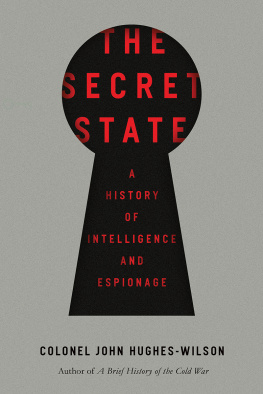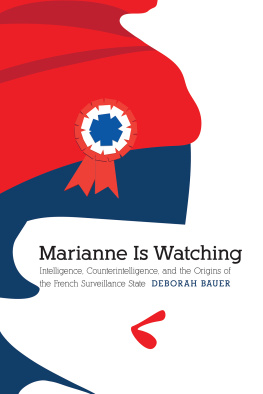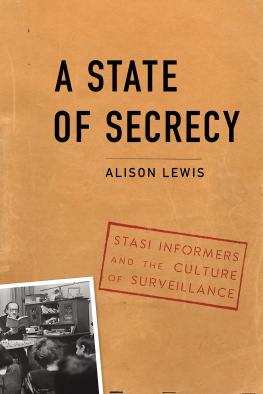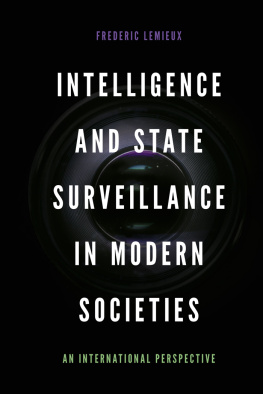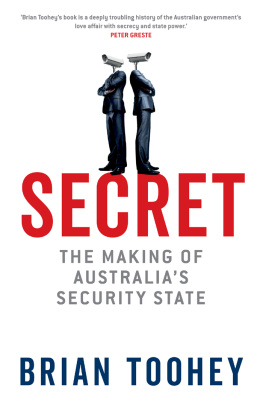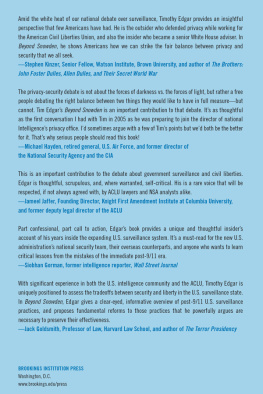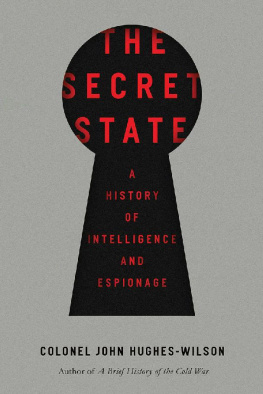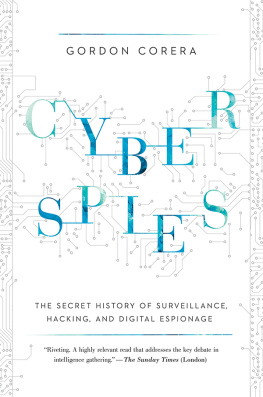Hughes-Wilson - The Secret State
Here you can read online Hughes-Wilson - The Secret State full text of the book (entire story) in english for free. Download pdf and epub, get meaning, cover and reviews about this ebook. City: New York, year: 2017, publisher: Pegasus Books, genre: Art. Description of the work, (preface) as well as reviews are available. Best literature library LitArk.com created for fans of good reading and offers a wide selection of genres:
Romance novel
Science fiction
Adventure
Detective
Science
History
Home and family
Prose
Art
Politics
Computer
Non-fiction
Religion
Business
Children
Humor
Choose a favorite category and find really read worthwhile books. Enjoy immersion in the world of imagination, feel the emotions of the characters or learn something new for yourself, make an fascinating discovery.
- Book:The Secret State
- Author:
- Publisher:Pegasus Books
- Genre:
- Year:2017
- City:New York
- Rating:3 / 5
- Favourites:Add to favourites
- Your mark:
- 60
- 1
- 2
- 3
- 4
- 5
The Secret State: summary, description and annotation
We offer to read an annotation, description, summary or preface (depends on what the author of the book "The Secret State" wrote himself). If you haven't found the necessary information about the book — write in the comments, we will try to find it.
The Secret State — read online for free the complete book (whole text) full work
Below is the text of the book, divided by pages. System saving the place of the last page read, allows you to conveniently read the book "The Secret State" online for free, without having to search again every time where you left off. Put a bookmark, and you can go to the page where you finished reading at any time.
Font size:
Interval:
Bookmark:

THE
SECRET
STATE
A HISTORY OF INTELLIGENCE
AND ESPIONAGE
COLONEL JOHN HUGHES-WILSON

This book is dedicated to the memory of:
Victor Andersen
British Intelligence Services
Val Heller
US Defense Intelligence Agency
Major Andrew Nightingale
Intelligence Corps and Special Air Service Regiment
Colonel John K. Moon
US Military Intelligence
Corporal Oliver Thomas
Intelligence Corps
The Latin phrase sub rosa means under the rose and is used in English to denote secrecy or confidentiality.
The rose as a symbol of secrecy has a history dating back to ancient Egypt. The Romans sometimes hung a rose above the table being used for diplomatic negotiations. In medieval times pictures of five-petalled roses were often carved on confessionals, indicating that what was said within would remain secret. In the council chambers of Henry VIIIs palaces a stylised Tudor rose covered the ceiling of the private chamber where confidential decisions of state were made.
The rose is now used by many nations as the badge of intelligence and security.
THE SECRET STATE
Pegasus Books Ltd
148 West 37th Street, 13th Floor
New York, NY 10018
Copyright 2016 by John Hughes-Wilson
First Pegasus Books hardcover edition January 2017
All rights reserved. No part of this book may be reproduced in whole or in part without
written permission from the publisher, except by reviewers who may quote brief excerpts
in connection with a review in a newspaper, magazine, or electronic publication; nor may
any part of this book be reproduced, stored in a retrieval system, or transmitted in any
form or by any means electronic, mechanical, photocopying, recording, or other,
without written permission from the publisher.
ISBN: 978-1-68177-302-5
ISBN: 978-1-68177-369-8 (e-book)
Distributed by W. W. Norton & Company, Inc.
ABOUT THIS BOOK
This is a book that has its roots in Military Intelligence Blunders, first written in 1999. It sold well and a second, updated edition came out in 2004 after the 9/11 attack on the World Trade Center and the invasion of Iraq. That too became a best-seller and I was both surprised and heartened to see that the book has since been translated into six languages, including Turkish and Japanese, and has become recommended reading by intelligence agencies, as well as a text book for a number of university courses on intelligence.
Since 2004 much has changed however and in this new book, which is much wider in scope than its predecessors, I have tried to capture some of these changes and assess their impact to give the reader a much broader view of the whole subject of intelligence. Hence its title: On Intelligence, However, unlike Clausewitzs monumental 1832, On War, this work on intelligence is intended to avoid the pitfalls of the now dated German meisterwerk.
For a start it is meant to be readable. With a book that is an important issue. It would be interesting to discover just how many people (let alone academic military historians) have actually read all eight volumes and all the complexities of von Clausewitz in the original German. I suspect, rather like the CommunistSocialist bible, Das Kapital, very few folk have actually read and absorbed the masters deep thoughts, let alone understood the linguistic subtleties and nuances contained therein.
On Intelligence is therefore not intended as a ruminative academic stroll through historic events to reach some broad reflective conclusions, before getting completely lost in the thickets of philosophy and Hegelian dialectic. Rather it is intended as an up-to-date analysis of intelligence in the recent past, and how its impact has affected great events. Wherever possible, case studies and hard examples are analysed in some detail, looking for answers rather than the unfinished metaphysical reflections that so characterise On War. There are some tough lessons to be learned from intelligence failures especially today, and from intelligence successes, too.
But On War and On Intelligence do both share a common aim. In von Clausewitzs own words from long, long ago: To write a book that will not be forgotten after two or three years.
Most of us have read press accounts and books about the events that unfold on these pages. But very few of us have seen the events from the inside. The inside implies knowledge: and knowledge means power.
By inside, I do not mean the views of politicians or the other self-satisfied classes like senior civil servants or even those very grand journalists who often write memoirs on the lines of, Well, as the president said to me...
The real insiders knowledge is always the intelligence that was available at the time. It was that secret intelligence that shaped events and made the people who took the decisions into heroes or villains. This book tries to lift the veil on what really happened behind the scenes in the intelligence world during some of the most well-known military events that have shaped our lives. It tries to show why decisions were made, for good or ill, by a number of famous and not so famous characters, based on the intelligence and the secrets they had to work with at the time. This book tends to highlight intelligence mistakes and blunders (carefully concealed from the taxpayer who paid for them) for the simple reason that they are more interesting than the far more numerous successes of intelligence.
The book also identifies numerous deceptions, lies and cover-ups. Not all of these were committed to deceive the enemy. Turning over stones invariably lets a harsh light onto some creatures of the shadows. There are many intelligence officers and government officials, in all regimes, who prefer to keep their role and decisions secret, and thrive on secrecy in order to protect their careers and way of life. It guarantees their income, their status and their pensions. Secrecy is everything to them and far too often it is not for any motives of national security. In this desire to cover things up, they are too frequently encouraged and joined by their political masters.
In this they are only outclassed by their bosses, those very senior civil servants and securocrats of every countrys administration, who equally thrive and prosper in the sure and certain knowledge that access to secret intelligence has given them the ultimate benefit of the mistress or harem: power without responsibility. But, like their political masters, good intelligence officers should always have the courage of their convictions, and be ready to show moral courage by taking responsibility for their advice. Intelligence is, after all, about predicting the most likely future, not just regaling concerned decision makers with hot new facts. That is called news. CNN, the BBC, Fox, Sky News and now the immediacy of social media do the rolling 24/7 news agenda far better than any intelligence agency, as every professional modern intelligence officer knows. However, when careers are at stake that is a hard precept to follow.
If I had to offer a motto for any intelligence officer I would unhesitatingly quote the 1950s American Friends (Quaker) phrase, Speak Truth unto Power. That phrase has since been long associated with the British Civil Service. To be able to give honest and objective advice to ministers has always been seen as something that all impartial civil servants and intelligence officers should be able to do. Sadly, in their complicity over the scandal of Tony Blair and Alastair Campbells use of a notoriously misleading (if not downright mendacious) sexed-up intelligence dossier to convince Parliament and the British people to enter the 2003 Iraq War, Whitehalls not so faceless intelligence bureaucrats let their calling and their countrymen down badly.
Next pageFont size:
Interval:
Bookmark:
Similar books «The Secret State»
Look at similar books to The Secret State. We have selected literature similar in name and meaning in the hope of providing readers with more options to find new, interesting, not yet read works.
Discussion, reviews of the book The Secret State and just readers' own opinions. Leave your comments, write what you think about the work, its meaning or the main characters. Specify what exactly you liked and what you didn't like, and why you think so.

